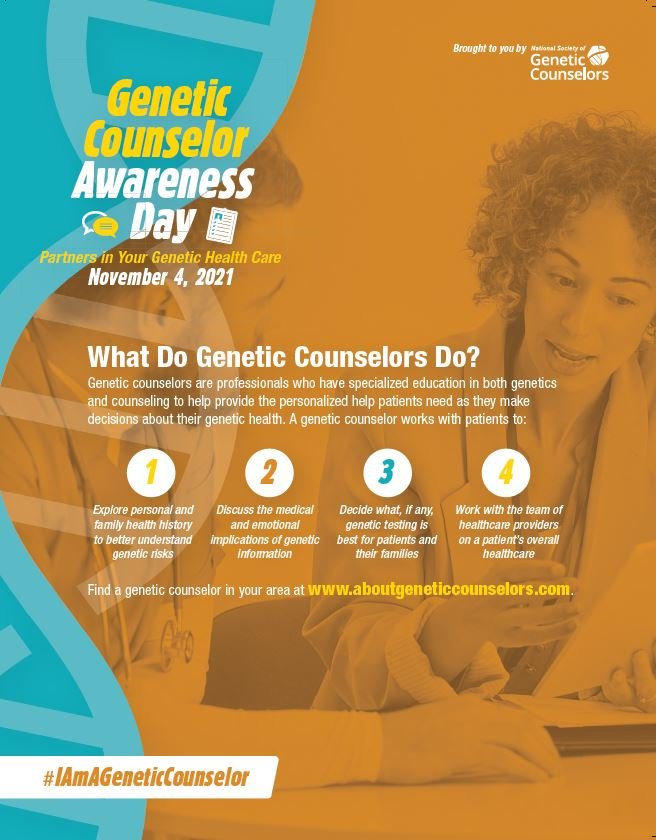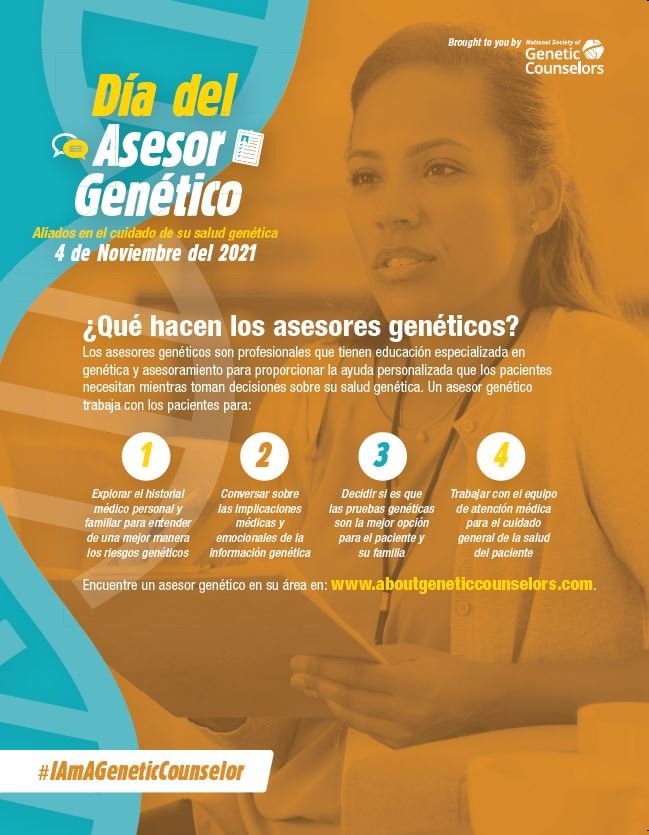ABOUT GENETIC COUNSELING
What Genetic Counselors Do?
THE FORMAL DEFINITION:
Genetic counseling is the process of helping people understand and adapt to the medical, psychological, and familial implications of genetic contributions to disease. The process integrates:
Interpretation of family and medical histories to assess the chance of disease occurrence or recurrence
Education about inheritance, testing, management, prevention, resources
Counseling to promote informed choices and adaptation to the risk or condition
~ National Society of Genetic Counselors
Who are Genetic Counselors?
Genetic counselors are members of the health care team that specialize in helping patients who are in need of genetics services oftentimes working with other health care providers such as medical geneticists, oncologists, OB/GYNs, and primary care providers. Genetic counselors may also work in non-clinical roles such as research or industry.
Roles that genetic counselors may play in the clinic include:
Educating patients about genetic conditions and inheritance (how conditions run in families)
Recommending appropriate genetic tests as well as discussing the impact that the testing may have on the patient or family
Helping patients decide if genetic testing is right for them
Coordinating genetic tests and interpreting their results.
Genetic counselors are individuals who are specifically trained in genetics as well as counseling. They have Masters level degrees and are board certified by the American Board of Genetic Counseling (ABGC). Depending on the state genetic counselors live in, they may also by licensed by their state medical board.


